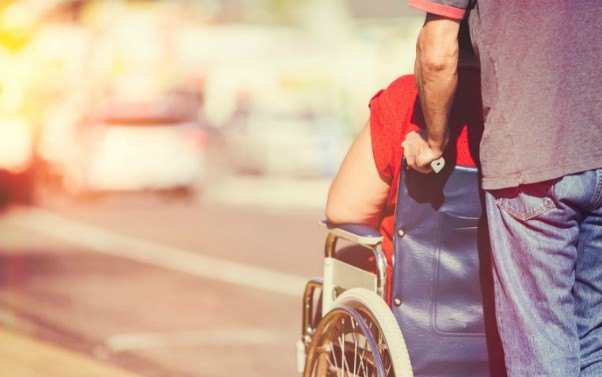
Disabled people were nearly three times more likely to have experienced domestic abuse last year than non-disabled people, Office for National Statistics data shows.
Rates of abuse were particularly high among young disabled people and those with learning disabilities, mental health needs or social or behavioural impairments.
In the year ending March 2020, around one in seven (14.3%) disabled people aged 16 to 59 years experienced any form of domestic abuse in England and Wales, compared with 1 in 20 non-disabled people of the same age (5.1%). The gap has widened slightly since the year ending March 2019.

Guidance on supporting disabled victims of domestic abuse
Community Care Inform Adults users can gain further information and guidance on this topic by reading our quick guides to domestic abuse and disability and domestic abuse and learning disabilities.
Among disabled women, 17.5% experienced any domestic abuse from 2019-20, while the rate for disabled men was 9.2%. By age, rates were highest among disabled people aged 16 to 24 (19.5%), and those this was also the case among non-disabled people, the rate almost three times smaller (7.3%).
The experience of domestic abuse also varied with impairment type, with people who reported a mental health (20.5%), a social or behavioural (20.0%) or a learning impairment (19.1%) having the highest rates, though the ONS said comparisons should be made with caution.
Disabled victims endure abuse for longer
Liz Thompson, director of external relations at domestic abuse charity SafeLives, said that as well as facing an increased likelihood of domestic abuse, its own research had found that disabled victims also experienced more severe and frequent abuse over longer periods of time than non-disabled victims.
“Our data reveals that disabled victims typically endure abuse for an average of 3.3 years before accessing support, compared to 2.3 years for non-disabled victims.
“That is why there needs to be dedicated funding for disabled and deaf ‘by and for’ specialist domestic abuse organisations across the country, alongside ensuring that disabled survivors of abuse are involved in designing better support and awareness raising messages,” Thompson said.


 Bournemouth, Christchurch and Poole
Bournemouth, Christchurch and Poole  Hampshire County Council
Hampshire County Council  Lincolnshire County Council
Lincolnshire County Council  Norfolk County Council
Norfolk County Council  Northamptonshire Children’s Trust
Northamptonshire Children’s Trust  South Gloucestershire Council
South Gloucestershire Council  Wiltshire Council
Wiltshire Council  Wokingham Borough Council
Wokingham Borough Council  Children and young people with SEND are ‘valued and prioritised’ in Wiltshire, find inspectors
Children and young people with SEND are ‘valued and prioritised’ in Wiltshire, find inspectors  How specialist refugee teams benefit young people and social workers
How specialist refugee teams benefit young people and social workers  Podcast: returning to social work after becoming a first-time parent
Podcast: returning to social work after becoming a first-time parent  Podcast: would you work for an inadequate-rated service?
Podcast: would you work for an inadequate-rated service?  Family help: one local authority’s experience of the model
Family help: one local authority’s experience of the model  Workforce Insights – showcasing a selection of the sector’s top recruiters
Workforce Insights – showcasing a selection of the sector’s top recruiters 

 Facebook
Facebook X
X LinkedIn
LinkedIn Instagram
Instagram
[…] Read more here > […]